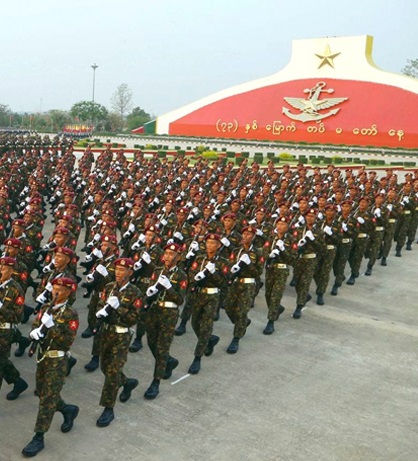The Tatmadaw (Myanmar military) will be in power for at least one year as Daw Aung San Suu Kyi and other NLD leaders remain in custody.
Legally speaking, the coup is not, as of now, a definitive end to Myanmar’s new democracy. The Tatamdaw has not — at least, not yet — abandoned the 2008 Constitution. On the contrary, the Constitution, largely authored by the Tatmadaw itself, grants it vague and wide-ranging powers with little civilian oversight. Thus, the military has claimed legal justification for all of its actions, which are ostensibly in response to accusations of systemic election fraud. The Tatmadaw cites the Constitution for both the year-long state of emergency and the newly-formed State Administrative Council. It says it will hold a new election after that one year period, after which, theoretically, things will return to normal.
However, there is reason to doubt this outcome and to expect a much longer military rule. The Tatmadaw employed the same rhetoric after the NLD’s victory in the 1990 election, claiming the political climate was too unstable to allow the newly-elected parliament to convene. They promised a new election, but it took 20 years for it to be held. When an election did occur in 2010, it was boycotted by the NLD, allowing the military-backed USDP to take control of parliament.
Yet it seems the Tatmadaw overestimated their political prospects in 2015: Several high-ranking officers who had resigned to pursue civilian office were roundly defeated. The NLD won even more parliament seats last November. The USDP and other parties attribute their success to fraud — a claim the Tatmadaw has endorsed with its takeover. Global media, human rights groups and, of course, the NLD itself dispute those claims. But regardless of the truth, the result of the election was the same: The NLD had become an even larger political juggernaut than the Tatmadaw expected, and the army is likely counting on support from opposition parties who have watched their own power rapidly evaporate over the past five years.


